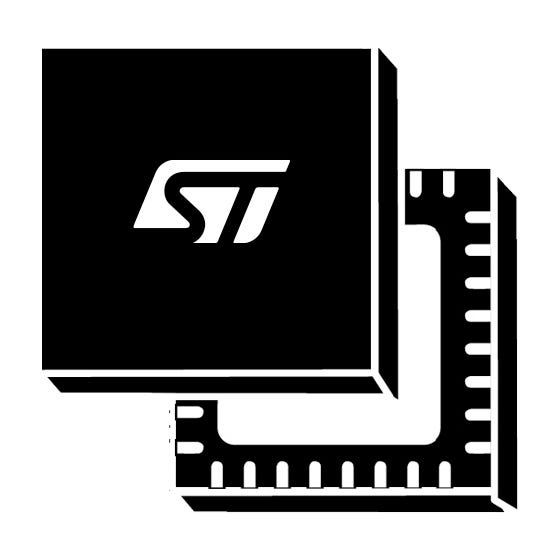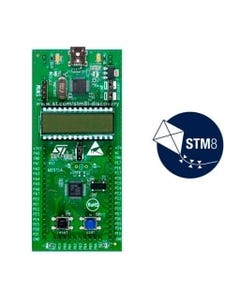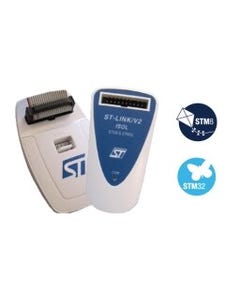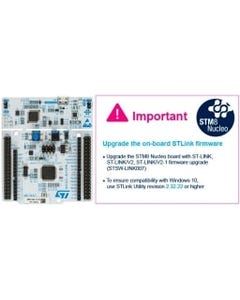📢 $9.99 flat rate shipping in EMEA countries! Ends April 30th - Don't Miss Out!. 🛒 Shop now
Active
STM8L151K6U6
Ultra-low-power 8-bit MCU with 32 Kbytes Flash, 16 MHz CPU, integrated EEPROM
| Supply Voltage Min Volt | 1.65 |
| Supply Voltage Max Volt | 3.6 |
| Operating Temp Min Celsius | -40.0 |
| Operating Temp Max Celsius | 85.0 |
| Core | STM8 |
| ECCN US | EAR99 |
| ECCN EU | NEC |
| Packing Type | Tray |
| RoHs compliant | Ecopack2 |
| Grade | Industrial |
| Package Name | UFQFPN 32 5x5x0.55 mm |
The medium-density STM8L151x4/6 and STM8L152x4/6 devices are members of the STM8L ultra-low-power 8-bit family. The medium-density STM8L15x family operates from 1.8 V to 3.6 V (down to 1.65 V at power down) and is available in the -40 to +85 °C and -40 to +125 °C temperature ranges.The...
Read More
|
| Quantity | $ per unit | Savings |
|---|---|---|
| 1-9 | $2.74 | 0% |
| 10-99 | $2.03 | 26% |
| 100-249 | $1.92 | 30% |
| 250-499 | $1.73 | 37% |
| 500-999 | $1.46 | 47% |
| 1000-2939 | $1.41 | 49% |
| 2940-10000 | $1.27 | 54% |
| 10000 + |
Contact sales |
|
| Supply Voltage Min Volt | 1.65 |
| Supply Voltage Max Volt | 3.6 |
| Operating Temp Min Celsius | -40.0 |
| Operating Temp Max Celsius | 85.0 |
| Core | STM8 |
| ECCN US | EAR99 |
| ECCN EU | NEC |
| Packing Type | Tray |
| RoHs compliant | Ecopack2 |
| Grade | Industrial |
| Package Name | UFQFPN 32 5x5x0.55 mm |
The medium-density STM8L151x4/6 and STM8L152x4/6 devices are members of the STM8L ultra-low-power 8-bit family. The medium-density STM8L15x family operates from 1.8 V to 3.6 V (down to 1.65 V at power down) and is available in the -40 to +85 °C and -40 to +125 °C temperature ranges.The...
Read More
|





